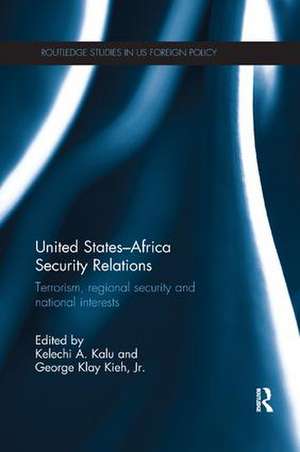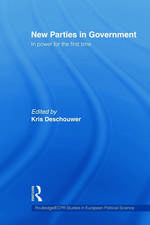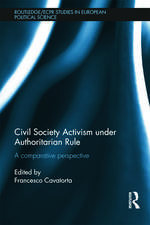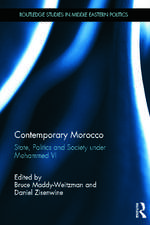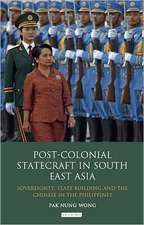United States - Africa Security Relations: Terrorism, Regional Security and National Interests: Routledge Studies in US Foreign Policy
Editat de Kelechi A. Kalu, George Kiehen Limba Engleză Paperback – 14 aug 2018
The second cycle of the relationship covered the period 1991-1998. During this time, the U.S. scaled down its security activities in Africa. The major reason was that with the end of the Cold War Africa(with few exceptions like Egypt) was no longer a major front for the promotion of U.S. Security interests.
The third cycle commenced in 1998 and ended in 2001. This period was characterized by the U.S.’ search for an approach to frame its security relations with Africa. In this vein, the U.S. undertook various military-security initiatives .
The fourth cycle began after the 9/11 terrorist attacks against the American homeland. Since then, the U.S. has expanded the scope of its security relations with Africa, as reflected in the establishment of various initiatives and programs. At the core is the prosecution of the American "war on terror."
Against this backdrop, this book examines some of the major dimensions of the U.S.’ security relations with Africa, including American security interests on the continent, the "war on terror," AFRICOM, and military cooperation. Using the book’s integrative theoretical framework, each of the chapters in the volume examines the various factors that shape the issue of focus.
| Toate formatele și edițiile | Preț | Express |
|---|---|---|
| Paperback (1) | 228.72 lei 6-8 săpt. | |
| Taylor & Francis – 14 aug 2018 | 228.72 lei 6-8 săpt. | |
| Hardback (1) | 1060.52 lei 6-8 săpt. | |
| Taylor & Francis – 24 oct 2013 | 1060.52 lei 6-8 săpt. |
Din seria Routledge Studies in US Foreign Policy
-
 Preț: 286.05 lei
Preț: 286.05 lei -
 Preț: 304.19 lei
Preț: 304.19 lei -
 Preț: 309.93 lei
Preț: 309.93 lei - 9%
 Preț: 935.09 lei
Preț: 935.09 lei -
 Preț: 326.14 lei
Preț: 326.14 lei -
 Preț: 326.14 lei
Preț: 326.14 lei -
 Preț: 358.41 lei
Preț: 358.41 lei - 18%
 Preț: 1115.99 lei
Preț: 1115.99 lei -
 Preț: 363.58 lei
Preț: 363.58 lei - 14%
 Preț: 330.10 lei
Preț: 330.10 lei - 18%
 Preț: 698.08 lei
Preț: 698.08 lei - 18%
 Preț: 1055.51 lei
Preț: 1055.51 lei -
 Preț: 412.62 lei
Preț: 412.62 lei - 16%
 Preț: 338.68 lei
Preț: 338.68 lei -
 Preț: 467.44 lei
Preț: 467.44 lei - 18%
 Preț: 1057.40 lei
Preț: 1057.40 lei - 26%
 Preț: 764.20 lei
Preț: 764.20 lei - 18%
 Preț: 1053.47 lei
Preț: 1053.47 lei - 18%
 Preț: 1051.60 lei
Preț: 1051.60 lei -
 Preț: 465.15 lei
Preț: 465.15 lei - 28%
 Preț: 822.36 lei
Preț: 822.36 lei - 19%
 Preț: 238.40 lei
Preț: 238.40 lei -
 Preț: 351.66 lei
Preț: 351.66 lei -
 Preț: 463.77 lei
Preț: 463.77 lei -
 Preț: 463.62 lei
Preț: 463.62 lei - 18%
 Preț: 1112.34 lei
Preț: 1112.34 lei - 28%
 Preț: 820.03 lei
Preț: 820.03 lei - 18%
 Preț: 1108.37 lei
Preț: 1108.37 lei - 18%
 Preț: 1060.52 lei
Preț: 1060.52 lei - 18%
 Preț: 1057.57 lei
Preț: 1057.57 lei - 28%
 Preț: 820.73 lei
Preț: 820.73 lei -
 Preț: 410.50 lei
Preț: 410.50 lei - 28%
 Preț: 819.09 lei
Preț: 819.09 lei -
 Preț: 484.08 lei
Preț: 484.08 lei - 18%
 Preț: 1054.71 lei
Preț: 1054.71 lei - 18%
 Preț: 1053.92 lei
Preț: 1053.92 lei - 18%
 Preț: 1057.40 lei
Preț: 1057.40 lei -
 Preț: 464.16 lei
Preț: 464.16 lei -
 Preț: 319.59 lei
Preț: 319.59 lei - 18%
 Preț: 701.56 lei
Preț: 701.56 lei
Preț: 228.72 lei
Preț vechi: 273.81 lei
-16% Nou
Puncte Express: 343
Preț estimativ în valută:
43.77€ • 47.53$ • 36.77£
43.77€ • 47.53$ • 36.77£
Carte tipărită la comandă
Livrare economică 22 aprilie-06 mai
Preluare comenzi: 021 569.72.76
Specificații
ISBN-13: 9781138359277
ISBN-10: 1138359270
Pagini: 248
Ilustrații: 1 Line drawings, black and white; 1 Illustrations, black and white
Dimensiuni: 156 x 234 x 33 mm
Greutate: 0.46 kg
Ediția:1
Editura: Taylor & Francis
Colecția Routledge
Seria Routledge Studies in US Foreign Policy
Locul publicării:Oxford, United Kingdom
ISBN-10: 1138359270
Pagini: 248
Ilustrații: 1 Line drawings, black and white; 1 Illustrations, black and white
Dimensiuni: 156 x 234 x 33 mm
Greutate: 0.46 kg
Ediția:1
Editura: Taylor & Francis
Colecția Routledge
Seria Routledge Studies in US Foreign Policy
Locul publicării:Oxford, United Kingdom
Cuprins
PART I: HISTORICAL AND THEORETICAL CONTEXTS OF US-AFRICA RELATIONS Chapter 1. Introduction: Framing United States-Africa Security Relations, Kelechi A. Kalu and George Klay Kieh, Jr Chapter 2. From Benign Neglect to Strategic Engagement: The Challenges of Transforming America’s African Policy in the Age of Obama, Clement Adibe Chapter 3. US-Africa Security Relations in the Twenty-First Century: Trends and Implications, Kelechi A. Kalu PART II: National and Regional Security Issues in US-Africa Relations Chapter 4. U.S. Security Interests in Africa, Diane Chinonso Orefo Chapter 5. The Global "War on Terror" in Africa, Abdoulaye Saine PART III: POLICY LINKAGES: ECONOMIC & MILITARY STRATEGIES Chapter 6. The Political Economy of U.S.-Africa Security Relations: The Institutional Approach, John Mukum Mbaku Chapter 7. The U.S. Africa Command (AFRICOM): Issues and Perspectives, Emmanuel Kwesi-Aning Chapter 8. U.S.-Africa Military Cooperation, Jones Arogbofa PART IV: LESSONS AND INSIGHTS Chapter 9. Rethinking U.S.-Africa Security Relations, George Klay Kieh, Jr.
Descriere
The book examines the broad gamut of the United States’ security relations—terrorism, AFRICOM, military cooperation, national interests, and natural resources— with Africa.
